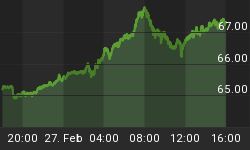Inflation in Turkey has hit almost 25 percent, the lira is still in crisis mode and the Central Bank remains way behind the inflation curve, with too little power to do anything about it. Still, Erdogan says the country isn’t facing an economic catastrophe and Turkey has no need of any help from the IMF.
On Sunday, Erdogan told his Justice and Development Party (AKP) that he had “closed the book on the IMF”, and it won’t be opening again. And despite the piles of evidence to the contrary, he said Turkey doesn’t have any worrying economic problems.
“It is out of question for Turkey to cross paths with the IMF. Turkey has closed that chapter forever,” Erdogan told the AKP, according to regional media reports.
"We undertook a debt of $23.5 billion when we came to the office. We paid off the debt in 2013. Aren't we the ones who saved this country from the IMF yoke?” he added.
Erdogan also insisted that "Turkey's economic indicators are at a very good level compared to other countries."
Belligerent to the economic end, Erdogan talked about the long-running fight against attacks on Turkish economic independence, and vowed that as long as he lives, neither the IMF nor any other international institution will “put Turkey under the yoke”.
In that same vein, he has reportedly ordered his ministers to reject any idea of financial advice from McKinsey (but only after mounting criticism in the media about employing a U.S. firm at the same time as Ankara is accusing the U.S. of economic sabotage).
Any economic solution will be homegrown, but the current economic causes for concern, he continued to insist, are not homegrown. Erdogan blamed the sudden rise in exchange rates on manipulation, calling it one of the largest economic attacks in Turkish history. Related: Millennials Love Luxury, They Just Don’t Want To Pay For It
Be that as it may, beyond Erdogan, there is no one else who sees anything but a crisis.
The lira has lost 40 percent of its value this year, and by end September, inflation had hit nearly 25 percent—a 15-year high.

(Click to enlarge)
And, yes, politics is at play—both at home and abroad.
A diplomatic row between Washington and Ankara over an American pastor being held under house arrest in Turkey led to U.S. sanctions on two Turkish ministers and Trump’s doubling of steel and aluminum tariffs for Turkey.
But inflation or now, Erdogan remains committed to the belief that high interest rates brings high inflation, and when the Central Bank moved to hike interest rates last month—belatedly—he played this off as a decision he was against in order to save face after calling interest rates “the mother and father of all evil”.
In the meantime, high oil prices are also taking their toll, and economists are lining up to predict a recession.
The Central Bank’s independence remains in question, with the new buzz phrase shaping up to be something along the lines of “nominally independent”, which scares off investors—even the more so since Erdogan appointed his son-in-law to head the Finance Ministry.
Investors will be closely watching an October 12th hearing, which could potentially result in the release from house arrest of the American pastor. They will also be watching for indications of what the Central Bank might do with interest rates at its next meeting on October 25th.
Related: ‘Spy Chips’ Add To Trade War Worries
While some analysts foresee another rate hike as inevitable this month, others are skeptical.
Inan Demir, a senior emerging markets economist at Nomura, told Haaretz that the Turkish Central Bank will have no choice but to react to the situation. “This is not something that could be ignored and they will have to hike at their next meeting,” he said.
At the same time, Haaretz also quoted Jason Tuvey of Capital Economics as saying in a note to clients that “Given the scale of last month’s rate hike and continued pressure form President Erdogan for rates not to be raised further, we think that policy will be left on hold.”
Tuvey further noted that inflation was likely to rise further in the coming months.
In the meantime, Turkey has announced exemptions to its ban on using foreign currencies in business agreements, Reuters reports, citing the Turkish Official Gazette. Last month, the government ruled that all property sales, leasing transactions and rent contracts must be in lira, despite the some 40-percent loss in value since the beginning of the year.
By Charles Benavidez for Safehaven.com
More Top Reads From Safehaven.com:
















